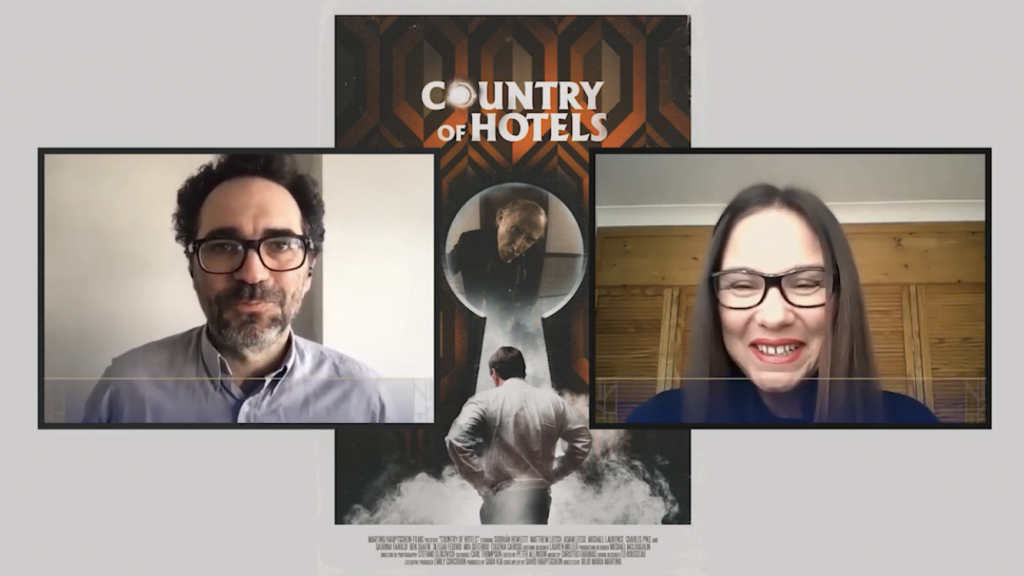
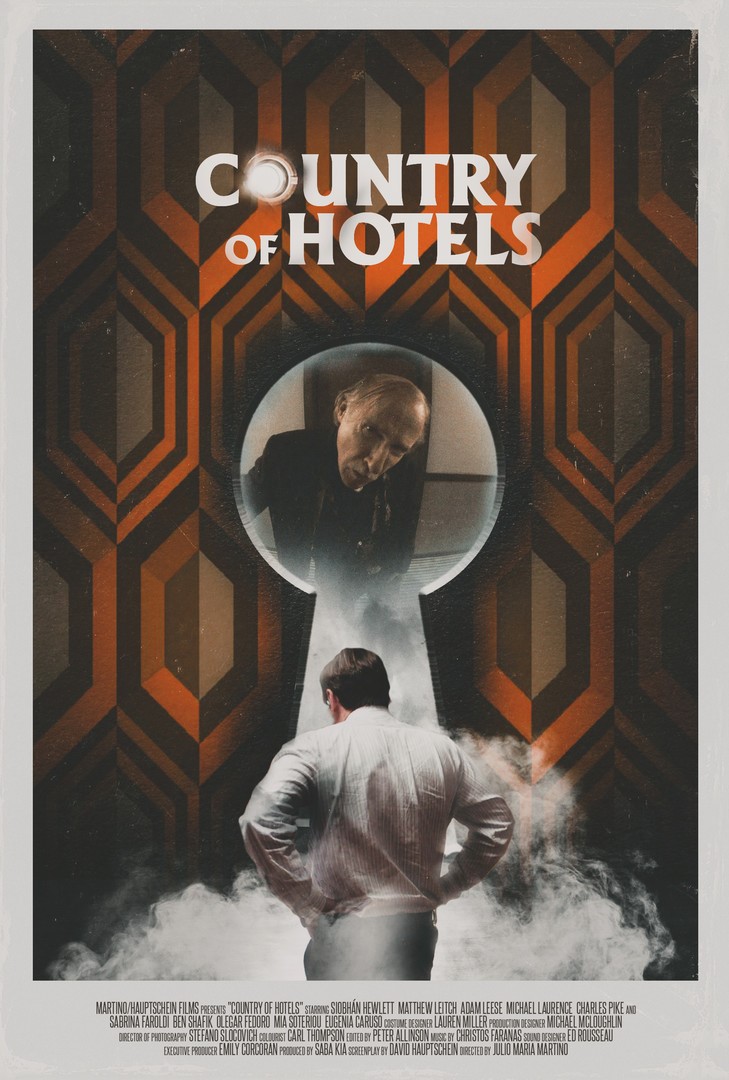
At A Glance
Country of Hotels is a surreal, fly on the wall look at the disturbing effects that room 508 has on its residents. Directed by Julio Maria Martino his feature debut is brave, experimental, well-crafted comprising of some compelling performances. The aptly named title serves as a clever metaphor for the sense of isolation we can often find whilst stopping in strange hotels.

Watch COUNTRY OF HOTELS at 7pm Sunday 26th September
Film Details
Directed by Julio Maria Martino
Written by Jill Gevargizian, Eric Havens, Eric Stolze
Screening at Nottingham International Film Festival, 26th September
2021, 105 minutes
Social Media: Instagram: @juliomariamartino / Twitter: @juliommartino
Cast
Adam Leese as Pauly Blumenthal
Sabrina Faroldi as The Maid
Siobhan Hewlett as Brenda
Ben Shafik as Sammy
Mia Soteriou as The Desk Clerk
Eugenia Carusoas Louisa / Beverly
Michael Laurence as Derek
Charles Pike as Vic Spencer
I check in with director Julio Maria Martino to talk about his debut feature Country of Hotels
By Claire Bueno
Predominately known as a theatre director Julio Maria Martino has worked with high calibre actors such as Benedict Cumberbatch. As a child his father ran a video shop, immersing him in film, igniting his passion for the medium. And now audience have an opportunity to see his film, as his debut feature Country of Hotels premieres at Manchester Film Festival. I was lucky enough to interview him and learn all about the making of his movie as well as some handy tips for future indie filmmakers.
The film is such a unique story that I thought perhaps that was something that enticed you to want to do it because it is something that we’ve never seen before?
Yeah, I think working with the writer David Hauptschein for a long time, sort of on and off for the past 20 years, really since we first met. And we decided that we wanted to make the film set in a hotel which we could make on a relatively low budget, but use the very limited location and the boundaries of a hotel to create the kind of stories that we’re interesting in telling, which were really, really unusual journeys into the outer reaches of the abnormal reaches of the imagination. So it is absolutely what attracted me to it and it’s kind of the area that we like to work in yeah, so absolutely yes.
It reminded me of The Shining a little bit?
Sure, yeah well I mean there’s a couple of things in it which, any film that you set in a hotel you’re going to be sort of reminding people of The Shining just cos Kubrick the way he explored that environment, he explored so brilliant. Although the difference being The Shining it’s a really, really vast sort of space with incredibly wide corridors and huge sort of palatial rooms, whereas Country of Hotels, partly because of the budget is set in a very cramped oppressive space where the limit of the rooms which do shift somewhat during the film, the limits of the room really are creating a pressure cooker, physiological pressure cooker environment, but it does unavoidably enter into the territory of films like The Shining. And The Shining predominantly, and also the wall paper in the film ended up being a wave to the homage to the décor of The Shining somewhat. I purposely haven’t watched The Shining in years because I didn’t want to steal from it too much, but it happens anyway.
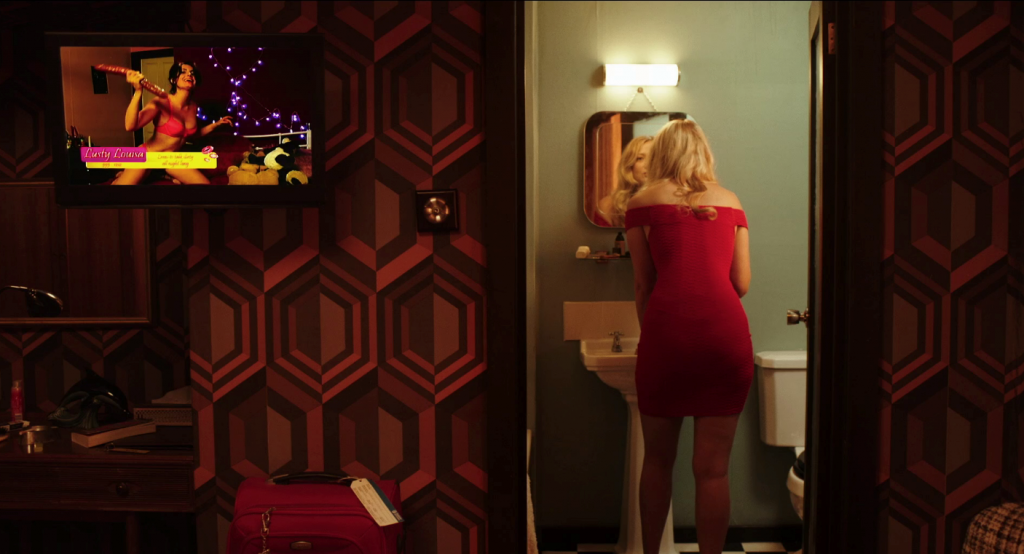
Because you’ve come from theatre you are used to working in confined space and area to work in. Does that then allow you to be more experimental, creative because you’ve got to find different camera angles to keep the audience’s attention?
Yeah absolutely, I mean what you’re saying there is something that obsessed me from the word go when we first started breaking down the script, building the script then breaking it down. I was relentlessly obsessed with not falling into the trap of creating a staged play. My father used to run a video shop I’ve been watching films all my life, it’s not because I come from the rarefied atmosphere of theatre and then wanted to put on a play set in one room where two people are having a conversation about some sort of political reality. The designing of the film even though it’s only in a handful of locations was very cinematically expressive and to set it experimental within that environment was really important to me. So we spent a long, long, long, long time working of what sort of camera style and camera angles, set up shots in order to keep the film moving along at a visual level, and so the film was speaking with a visual language to the audience. In the preparation of the shooting stage and also through to the edit and post-production it was something that I was thinking of all of the time and it was a really good sort of set of constrictions, set of rules placing on myself where I thought I’ve got to tell this story cinematically, I can’t fall into the trap of filming a play, which would be just death to me. So I worked very hard on that yeah, absolutely. Whether it’s successful or not is for everyone else to decide.
The one thing story wise what really spoke to me is just how transient hotels are and they’re actually quite isolated places and they make you feel quite isolated was that something that you wanted to tell through the story?
Yeah, absolutely we wanted to. Hotels in the past in cinema, in literature, in music are very evocative locations that have been used brilliantly, The Shining, Barton Fink all sorts of films. But we wanted to really go into the area and the idea of when you go into a hotel, you know you are entering as a stranger into a strange land and it’s a very destabilising, unusual sort of atmosphere which changes you as a person when you enter. And you are often dealing with people in that location who may not even be from the country that you’re in, you know you may go to a hotel in America, in this case may be run by Eastern Europeans or Russians or whoever because these people have set up this business. And so you are entering a very sort of surreal, potentially surreal world where unless you sort of look out of the window you’re not really sure where you are. And that was part of the decision, well actually to keep the film entirely within the hotel, to never even show you the exterior so we didn’t even build a model of the hotel and shoot it from outside. It was one brief moment of the exterior of the film that was really an idea to create this alternate reality where, what the audience don’t really know is, is this just a usual hotel? Or are the characters in some kind of weird purgatory? And likewise you wake up in a hotel one morning you don’t know what went on the day before in that hotel room if you’ve just entered it, you don’t know what went on a week before someone maybe died, people having an affair, maybe someone went mad, it’s this kind of weird as you say transient existence that people have in hotels and that hotel rooms themselves have as they. They’re the central character of Country of Hotel. Absolutely.
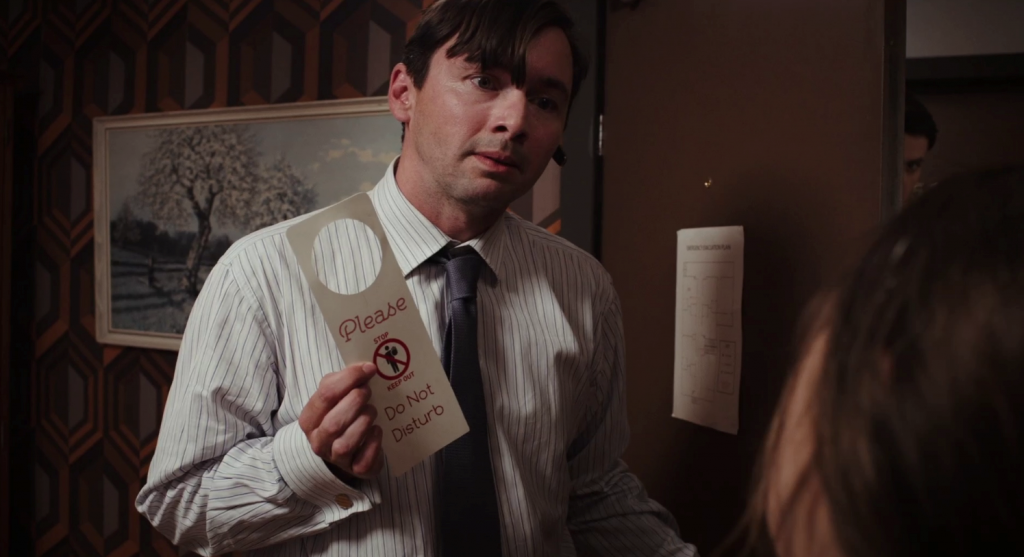
“At the centre of it is this very mysterious room, room 508 which acts as a central antagonist, central character that sort of silently sees everything and draws people into its vortex."
The story is like three separate stories all contained in this one room really isn’t it?
Yeah it, we played around with the idea of first having, when we were first conceiving of the film of maybe making a short film and then three short films. And then we came up with the idea of the outer structure skeleton of the piece revolving around the hotel staff who are a mysterious group of people who speak an unknown, undecipherable language between each other most of the time, and then speak in a very sort of creative surreal broken English to the guests. And we came up with the idea and the more we worked with it and worked with it we thought it would be a good idea not necessarily linking the stories narratively together, but thematically building a world where you’ve got a sense that this was a universe that is going to go on and on and on and on and people are going to come into this hotel, things are going to happen to them and they don’t really leave, they disappear, they go crazy, some of them die, you know things happen to these people. And at the centre of it is this very mysterious room, room 508 which acts as a central antagonist, central character that sort of silently sees everything and draws people into its vortex. And I could conceive of it as a series of shorts anymore or anything like that it feels more of a cinematic film, but it certainly an unusual structure, absolutely it conceived in a way an unusual project has been conceived, if I make another film it certainly won’t be like this one, because it came about completely organically in terms of the structure.
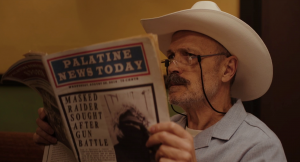
And working with the actors, they are at times in quite vulnerable mental places, how did you work with the actors because it is kind of pushing their boundaries a bit as well?
Yeah, well I think you have to pick people who enjoy for want of a better word going into those places and some of them are almost there already so that the actor that plays Vic Spencer who comes in in the final third, the mysterious pimp character. I have known him for a number of years and so has the writer and he’s, he’s not that in real life but he can access that at the drop of a hat, that’s just him, you know as soon as we decided he might be right for that he slotted right in. Other actors that I knew less well I worked with in the audition process and plotted over Skype even though we weren’t in the pandemic at all at that point, to see was it likely I could get there with them, but if you’ve got people who have got an affinity for the work it’s really just a case of noticing that they’re going there already just sort of suggesting little ways to go there, and pushing them further and further and further and further until you both have entered this new realm together almost by accident and that’s something that’s really enjoyable to do but you have to have the right actors to start with. Even though again it’s not something I think about when I am auditioning or trying to cast people, I cast them because I know them or I can see they are my kind of people for this kind of work. And I would say since you brought all that up one of the things that is really, really important I think is for people to have a sophisticated sense of humour about all of this, a sense of the absurd and I think if people have a sense of the absurd even about the most terrible things, you know in the film someone trips over and bangs their head on a minibar and dies in the film, they trip on a stuffed panda and that is tragic (laughs) it’s horrible but it’s also there’s something very, very funny about it you know, it could happen to me tomorrow and I’d have to admit it would be, there’s an element of there’s something funny about that, and if people have that sense of the absurd about it, it’s a very dark sense of humour, I think it really, really helps going into those kinds of places.
The film is set in America, but did you shoot it there?
No, we shot it in a warehouse in Essex, the budget, the cast is made up of people from all around the world, a lot of British actors but some Americans, some people from Italy that I know and then just the kind of people you meet in London who are from all over the world really, Russia. But we needed to find a place as close to London as possible for the cast and crew to get to every day, but far out enough so we could afford to hire it really because this is a very low budget film. Although I happen to think it looks great, it’s made with very little money. But it was a working warehouse that had 10 staff members in the working in the warehouse alongside us packing trainers and T-shirts while we were shooting, so we had to sound a horn when we wanted to shoot and they would all come to a stop and then we’d film, we’d shoot our three minutes of whatever it was and then we’d sound another horn later and they’d carry on packing their T-shirts and their trainers and this went on for three weeks, this was the arrangement we came to with a very enthusiastic company owner whose involved in selling T-shirts and trainers and what not. We all got on really, really well, it was a fun experience.
Watch full Interview with Julio
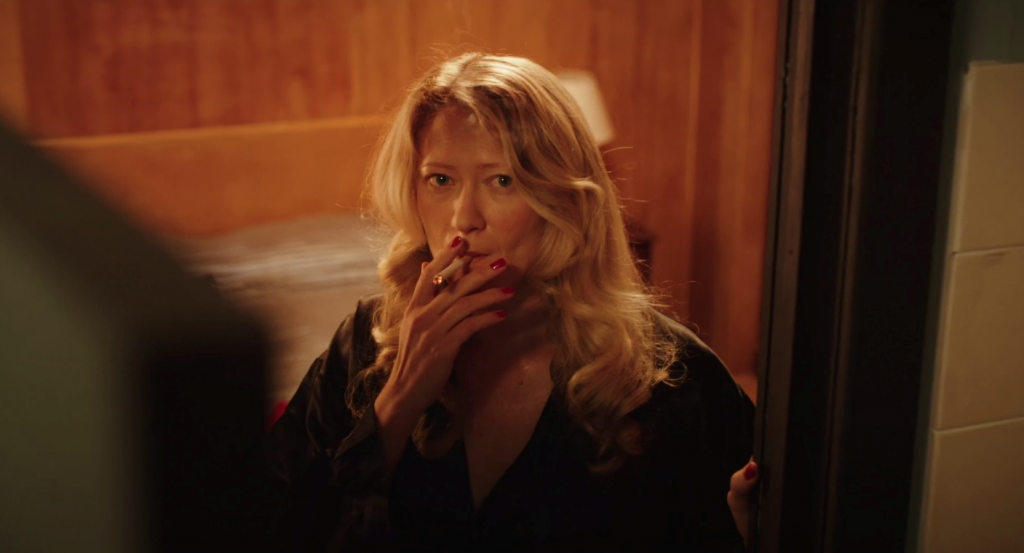
Tip for the Filmmaker - before you make your film!
I’m a filmmaker myself and what I have found particularly hard is when you are a creative and you’ve put all of your heart and soul and passion into making this project and it’s finished and you’re like, yes I want to show it to an audience then you have to enter into the world of business and money side of it and distribution, can you talk to us a little bit about the experience that you have had with that and any kind of challenges or any advice that you can give any other independent filmmakers?
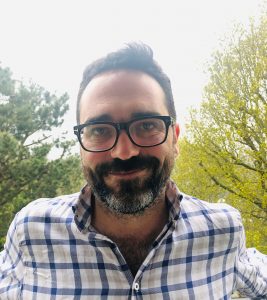
Yeah sure, what I’d say is we/I made this film completely stupidly with no sense of what would happen and the end of it. People would say you should try and get someone like a name in the film and I was like yeah I’ll try and I knew a few people who said they might do it. I was like yeah it will be fine, we’ve just gotta make the film. And I would say that coming out with something, especially if we had made a film that had more gore in it, because it’s a creepy, unusual film but it doesn’t have lots of killing in it. And I think that if you are going to do something in a similar way that I did it you know you have got to be prepared that people are not going to immediately understand what you’ve done and go ‘yeah, yeah that’s great, that’s fine’. It’s quite an objectionable film in many ways, there’s lots of nudity, quite perverted sort of sex and stuff and not everyone is going to like that (laughs) or appreciate it. Some people might, but a lot of people will be like what the hell have you done. What I would say is, this is undoubtedly a festival film and its route I believe is through the festival route, but you’ve got to be really, really, really sort of persistent and relentless about it and not give up on that, the film is about to premiere at the Manchester Film Festival tomorrow and Friday and took a long, long time to sort of get there and a lot of rejection so to speak and basically being ignored and I totally understand that, I’m not bitter about it or anything like that, I get it. But if you are going to make and indie film I think you have to go well I’m going to make it like a genre film, like a horror film, or a crime film, or something that I think you can intelligently look at things and go we’re gonna do this, we’re gonna apply to these festivals, and these distributors might like it. If you are going to out there and just go to your imagination and go this is what I’m going to present to the world as we did, I think you’ve got to be prepared for to find a way through things and find people, press agents, people you have maybe networked through previously, and I’m a terrible networker, to sort of give you advice on, you know, speak to this person, use this hook to get here. And I would recommend if you haven’t made a film before, I would recommend going to film festivals and seeing as many films as you can and understanding how that side of things works. And I’m terrible at going up and speaking to people, I can’t do it a lot of the time, I won’t do it, but it’s really good if you can and I would try and get your face seen, because people know who you are and then you send them your film they are going to be more likely to go I know this person, I know where they are coming from, I like them, I want to help them. And they can accept hundreds and hundreds and hundreds of films and they can’t deal with it all and a film like Country of Hotels which is really, really unusual, if it is just coming in anonymously from the internet somewhere on Film Freeway, it’s quite a hard thing to take in and so I think you have to be prepared with your film, be it a short film or a feature film to be very, very persistent about it. I was persistent for a very long time and read up on how to right cover letters for film festival and stuff like that and it can be done but it does take a lot of work, persistence is absolutely key I’d say.
Country of Hotels - Official Trailer
Claire Bueno
Claire Bueno is a film journalist, presenter and interviewer, having moderated BAFTA, Royal Television Society (RTS), Women in Film and Television (WFTV), and Apple Store Q&As and hosted Comic Con panel talks. Claire is the founder of Premiere Scene Magazine and has had the privilege of interviewing esteemed artists including Tom Cruise, George Clooney, Brad Pitt, Sir Anthony Hopkins, Sigourney Weaver, Emily Blunt, Samuel L Jackson, James Cameron and Andy Serkis.
As a media coach Claire works with leading personal publicists, HBO, Netflix, Sky, ITV, Penguin Random House, the BFI, DDA, MacMillan and Premier, offering practical coaching sessions and safe environment for talent to perfect their interview technique before facing the press. She has extensive experience working with emerging and seasoned professionals and where English is not their first language.
Additionally, Claire is the producer of the critically acclaimed feature documentary CLEANIN’ UP THE TOWN: Remembering Ghostbusters and the upcoming TOO HOT TO HANDLE: Remembering Ghostbusters II.